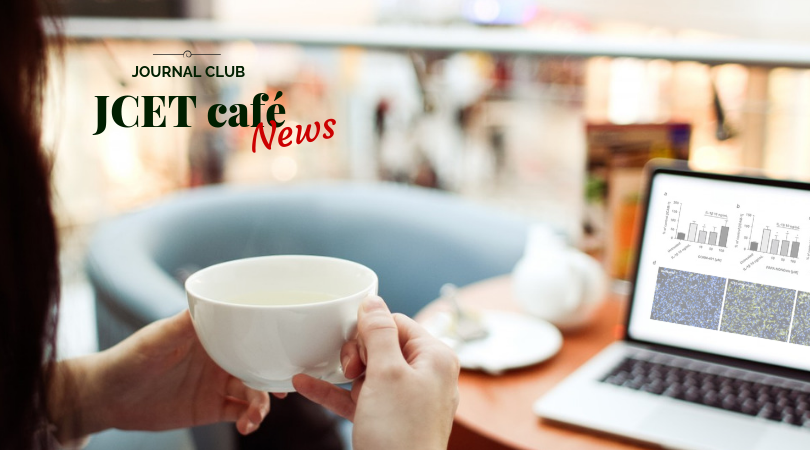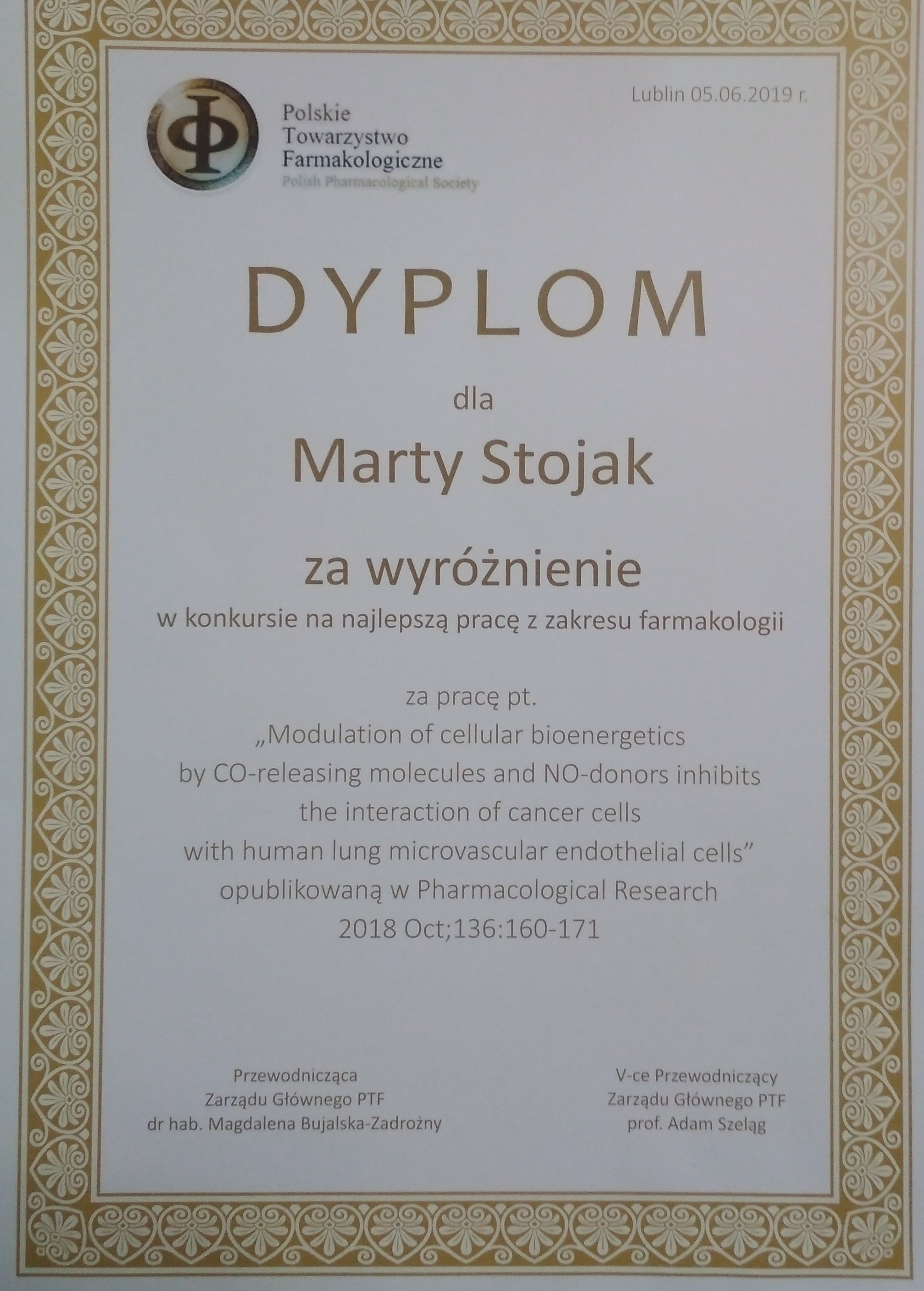Z przyjemnością informujemy o kolejnym sukcesie naukowym zespołu JCET. Publikacja pt.: „Modulation of cellular bioenergetics by CO-releasing molecules and NO-donors inhibits the interaction of cancer cells with human lung microvascular endothelial cells”, opracowana pod przewodnictwem Pani dr Marty Stojak, otrzymała wyróżnienie w PIERWSZEJ EDYCJI KONKURSU NA NAJLEPSZĄ PRACĘ Z ZAKRESU FARMAKOLOGII W LATACH 2016-2019, ogłoszonego przez Polskie Towarzystwo Farmakologiczne.
DOI: 10.1016/j.phrs.2018.09.005
Oficjalne wyniki konkursu dostępne na stronie Polskiego Towarzystwa Farmakologicznego.
Wyróżniona praca była również prezentowana na naszym fanpage’u na Facebook’u w ramach
JCET café – JOURNAL CLUB.
#JCETcaféJournalClub
Breast cancer metastasis is regulated through endothelial-dependent mechanisms, including a direct and indirect cross-talk between cancer cells and endothelium. Nitric oxide (NO) and carbon monoxide (CO) are a key molecules in the regulation of tumor-microenvironment interactions, although their precise role during metastasis are incompletely defined. Given that cancer cell migration is energy-demanding process and that both mediators, NO and CO, modulate cellular bioenergetics, we explored whether carbon monoxide-releasing molecule (CORM-401) and a nitric oxide donor (PAPA NONOate), given alone or in combination, modulate breast cancer cell adhesion and transmigration across the lung microvascular endothelium. We further examined whether the effects of CO and NO on cancer-endothelial cells interactions are linked with changes in cellular bioenergetics in breast cancer or endothelial cells. Our findings demonstrate that CO and NO differently affect cellular bioenergetics of cancer and endothelial cells and suggest that this phenomenon may contribute to additive anti-adhesive and anti-transmigratory effects of CO and NO. Based on our results we claim that pharmacological attenuation of metabolism represents an attractive target for preventing the interaction between cancer and endothelial cells. See more.


